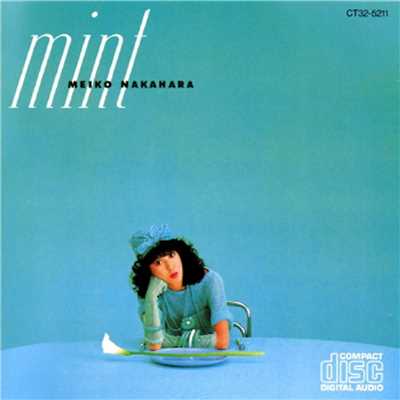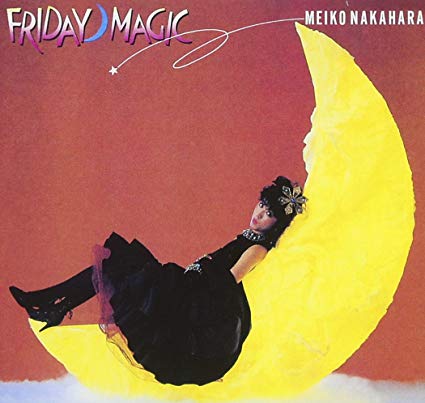| |
|
Kanji |
|
Kanji Level 2 (160
kanji) |
|
| 217 |
|
午 |
|
noon |
695 |
| 2480 |
ごぜん |
午前 |
gozen |
A.M. |
695 |
| 2441 |
ごご |
午後 |
gogo |
P.M., afternoon |
2071 |
| |
|
|
|
|
|
| |
|
|
|
|
|
| 218 |
|
汽 |
ki |
steam |
724
695 |
| 1604 |
きしゃ |
汽車 |
kisha |
train |
695 |
| 1621 |
きせん |
汽船 |
kısen |
steamship |
695 |
| |
|
|
|
|
|
| |
|
|
|
|
|
| 219 |
|
弓 |
yumi |
bow (weapon) |
|
| 7449 |
ゆみ |
弓 |
yumi |
bow (weapon) |
695 |
| |
ゆみや |
弓矢 |
yumıya |
bow and arrow |
1865
645 |
| |
|
|
|
|
|
| |
|
|
|
|
|
| 220 |
|
回 |
kai |
-times |
|
| 1002 |
かい |
回 |
kai |
-times, recursive |
695 |
| 1039 |
かいしゅう |
回収 |
kashuu |
withdrawal from circulation |
695 |
| 1047 |
かいすう |
回数 |
kaisuu |
number of times, frequency |
636
695 |
| 1048 |
かいすうけん |
回数券 |
kaisuuken |
book of tickets |
636
695 |
| 1055 |
かいそう |
回送 |
kaisoo |
forwarding, transportation |
695 |
| 1065 |
かいてん |
回転 |
kaiten |
rotation, revolution |
695 |
| 1067 |
かいとう |
解答、 |
kaitoo |
answer, solution |
695 |
| |
かいとう |
回答 |
kaitoo |
reply, answer |
695 |
| 1077 |
かいふく |
回復 |
kaifuku |
recovering |
695 |
| 1085 |
かいらん |
回覧 |
kairan |
circulation |
695 |
| 1089 |
かいろ |
回路 |
kairo |
circuit |
695 |
| 1124 |
かきまわす |
掻き回す |
kakimawasu |
to stir up; to ransack,
to disturb |
695 |
| |
かいそう |
回想 |
kaısoo |
reflection, reminiscence |
|
| |
かいそうろく |
回想録 |
kaısooroku |
memoirs |
|
mae 前
Noun (of space or time) meaning: before,
ago, previous, prior, last, former, in front
of, forward
1. Used for telling time
今三時五分前です。
Ima san ji go fun mae desu.
It is five minutes to three o'clock.
2. After noun expressing length/duration of
or point in time
私は半年前に日本に来ました。
Watashi wa hantoshi mae ni nihon ni
kimashita.
I came to Japan half a year ago.
マイクはポールが来る五分前に帰りました。
Maiku wa Pouru ga kuru go fun mae ni
kaerimashita.
Mike went home five minutes before Paul
came.
一時前にここに戻ります。
Ichi ji mae ni koko ni modorimasu.
I'll be back here before one.
私は二ヵ月前からここで働いています。
Watashi wa ni kagetsu mae kara koko de
hataraite imasu.
I've been working here since two months ago.
3. Used as adverb, followed by ni
前にどこかで会ったことがありませんか。
Mae ni dokoka de atta koto ga arimasen ka.
Haven't we met somewhere before?
前に歩いてください。
Mae ni aruite kudasai.
Walk in front, please.
4. After dictionary form of verb, followed
by ni
いつも寝る前にココアを飲みます。
Itsumo neru mae ni kokoa o nomimasu.
I usually drink some cocoa before I got to
bed.
私たちが着く前に電車が出た。
Watashi tachi ga tsuku mae ni densha ga deta.
The train had left before we arrived.
5. After noun (positional) + no
湖の前にすてきなホテルがあります。
Mizuumi no mae ni suteki-na hoteru ga
arimasu.
There is a nice hotel in front of the lake.
彼女の前でその話はやめよう。
Kanojo no mae de sono hanashi wa yameyou.
Let's stop talking about it in front of her.
6. Followed by no + noun
前の総理大臣は誰でしたか。
Mae no souri daijin wa dare deshita ka.
Who was the former Prime Minister?
鈴木さんの前の先生は誰でしたか。
Suzuki-san no mae no sensei wa dare deshita
ka.
Who was the teacher prior to Mr. Suzuki?
前の土曜日に泳ぎに行ってきました。
Mae no doyoubi ni oyogi ni itte kimashita.
I went swimming last Saturday.
そのことは前のページに書いてあります。
Sono koto wa mae no peeji ni kaite arimasu.
That matter is written about on the previous
page.
トイレは前の車両にあります。
Toire wa mae no sharyou ni arimasu.
The restroom is in the front car (of the
train).
-> See also: ato de, de, ni, no, uchi ni |
| |
marude まるで
Conjunction or adverb meaning: entirely,
(not) at all.
When used together with you よう or mitai みたい,
marude まるで means ''as if'' or ''as though''.
1. Used with you よう
(you usually follows a clause + ka no)
彼はまるで何も知らないかのように話す。
Kare wa marude nani mo shiranai ka no you ni
hanasu.
He talks as if he knows nothing at all.
2. Used with mitai よう
まるであなたがそれをしたみたいだ。
Marude anata ga sore o shita mitai da.
It sounds as though you had done it
yourself.
3. Used as adverb
ここに書いてあることはまるで話にならない。
Koko ni kaite aru koto wa marude hanashi ni
naranai.
What is written here is not at all worthy of
discussion.
その文の意味がまるで分かりません。
Sono bun no imi ga marude wakarimasen.
I don't understand the meaning of the
sentence at all.
-> See also: mattaku, mitai, you, you desu,
zenzen |
| |
masu ます
Auxiliary verb expressing politeness
A verb that ends a sentence is usually
followed by this auxiliary, while a verb
that ends a relative or noun clause is not.
The masu-form usually expresses definite
future actions or events, the speaker's
intentions, present habitual actions, or
potential actions. The progressiv form with
masu expresses continuing actions or states.
masu follows the conjunctive form of verbs.
masu has the following forms:
Non-past negative form: masen
Past affirmative form: mashita
Past negative form: masen deshita
Volitional form: mashou
1. Expressing future action/event
私は明日新幹線で京都に行きます。
Watashi wa ashita shinkansen de kyouto ni
ikimasu.
I will go to Kyoto by shinkansen tomorrow.
彼女は一緒に旅行には行きません。
Kanojo wa isshoni ryokou ni wa ikimasen.
She is not going with me on the trip.
閉会式は十時より行われます。
Heikaishiki wa juu ji yori okonawaremasu.
The closing ceremony will be held from ten.
2. Expressing speaker's intention
後で電話します。
Ato de denwa shimasu.
I'll call you later.
3. Expressing habitual action
私は毎朝ご飯とみそ汁を食べます。
Watashi wa mai asa gohan to miso shiru o
tabemasu.
I eat rice and miso soup every morning.
私はあまりタバコを吸いません。
Watashi wa amari tabako o suimasen.
I don't smoke much.
4. Expressing continuing action or state of
being
彼女は今あそこで新聞を読んでいます。
Kanojo wa ima asoko de shinbun o yonde imasu.
She is now reading a newspaper over there.
私はとてもおなかがすいています。
Watashi wa totemo onaka ga suite imasu.
I am very hungry.
彼はもうその会社では働いていません。
Kare wa mou sono kaisha dewa hataraite
imasen.
He is not working at that company any more.
5. Expressing present condition
このホテルは景色がよく見えます。
Kono hoteru wa keshiki ga yoku miemasu.
We have a good view from this hotel.
6. Expressing past/perfect action
私は昨日図書館でマイクに会いました。
Watashi wa kinou toshokan de maiku ni
aimashita.
I met Mike in the library yesterday.
もうその本は読みましたか。
Mou sono hon wa yomimashita ka.
Have you read that book yet?
7. Expressing volition
一緒に美味しい料理を食べましょう。
Isshoni oishii ryouri o tabemashou.
Let's eat some good food together.
8. Expressing suggestion
窓を閉めましょうか。
Mado o shimemashou ka.
Shall I shut the window?
9. Expressing invitation
お茶でも一緒に飲みませんか。
Ocha demo isshoni nomimasen ka.
Would you have tea (or something) with me?
-> See also: arimasen, temasu, Polite
Language (2), Verb forms (2) |
| |
mattaku まったく
Adverb meaning: quite, completely, really,
indeed, (not) at all, (not) in the least.
1. In affirmative sentence
まったく驚きました。
Mattaku odorokimashita.
I was really surprised.
まったくそのとおりです。
Mattaku sono toori desu.
You're quite right.
2. In negative sentence
彼はまったく信用できません。
Kare wa mattaku shinyou dekimasen.
He is not at all trustworthy.
それが何かまったく分かりません。
Sore ga nani ka mattaku wakarimasen.
I don't have the faintest idea what it is.
-> See also: marude, zenzen |
|
 中原めいこ - ジャグラ (Jyagura)
中原めいこ - ジャグラ (Jyagura) 中原めいこ - Fantasy
中原めいこ - Fantasy